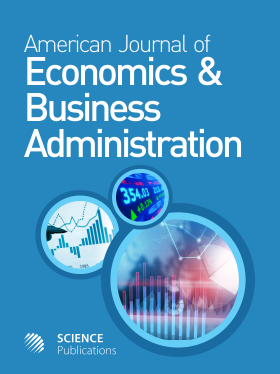Expecting the Unexpected Macroeconomic Volatility and Climate Policy
- 1 Gujarat National Law University, India
Abstract
Problem statement: Analysts have been comparing a policy scenario with a baseline scenario of future economic conditions without the policy, to estimate the emissions reductions and costs of a climate policy. Both scenarios required assumptions about the future course of numerous factors such as population growth, technical change and non-climate policies like taxes. Approach: The purpose of this study was to examine the effects of unanticipated macroeconomic shocks to growth in developing countries or a global financial crisis on the performance of three climate policy regimes: A globally-harmonized carbon tax; a global cap and trade system and the McKibbin-Wilcoxen hybrid. The G-cubed dynamic general equilibrium model has been used to explore how the shocks would affect emissions, prices, incomes and wealth under each regime. Results: It has been found that a global cap and trade regime will significantly change the way growth shocks will otherwise be transmitted between regions while price-based systems such as a global carbon tax or a hybrid policy will not. Moreover, in case of a financial meltdown, a price based system will enable significant emissions reductions at low economic cost whereas a quantity target base system will lead to loss of the opportunity for low cost emission reduction because the target is fixed. Conclusion: The results of this study have explored these issues by examining the effects of shocks that have actually occurred in the past decade: A surprising surge of economic growth in developing countries and a global financial crisis. Quantity based approaches such as a global permit trading regime tend to buffer some kinds of macro-economic shocks: Carbon prices rise and fall with the business cycle. However, price-based approaches such as a global carbon tax or a McKibbin Wilcoxen Hybrid would provide stronger firewalls to prevent adverse events in one carbon market from causing a collapse of the global system.
DOI: https://doi.org/10.3844/ajebasp.2009.232.235

- 6,004 Views
- 3,951 Downloads
- 0 Citations
Download
Keywords
- Global financial crisis
- climate regime
- G-cubed
- Kyoto protocol
- GDP growth and carbon emissions
